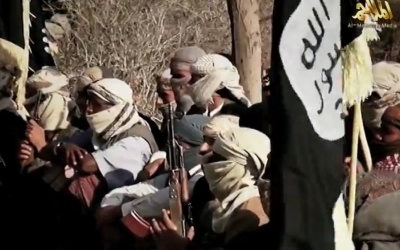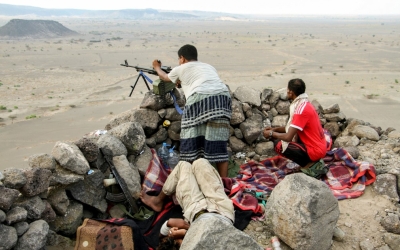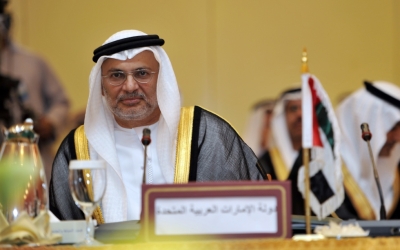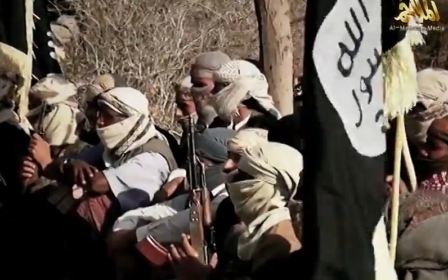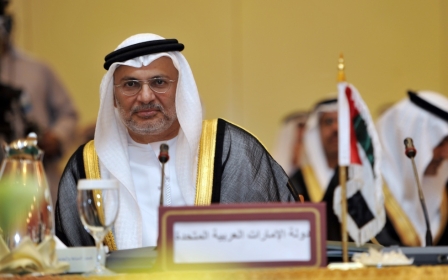Al-Qaeda attacks in south Yemen draw passive response amid coalition war with Houthis
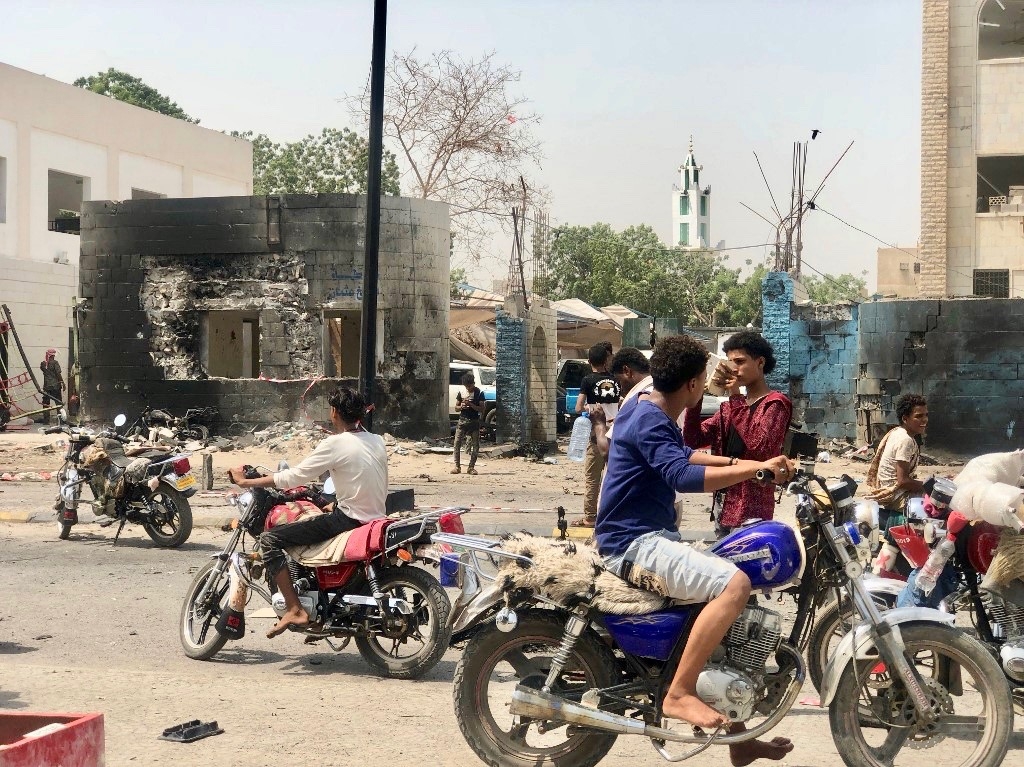
Early on Thursday a suicide bomber, possibly from al-Qaeda in the Arabian Peninsula (AQAP), drove his explosives-laden car into a police station in the Omar Al-Mokhtar neighbourhood of Yemen's Aden city.
No one has claimed responsibility for the attack, which an interior ministry statement says killed 13 policemen, but AQAP often uses such attacks to target military bases and police stations.
On the same day, AQAP fighters stormed a military base in Abyan's Al-Mahfad district and remained there until Friday morning, before military reinforcements arrived.
During the liberation of the base, the AQAP attackers killed 19 soldiers before fleeing to their strongholds in the province, which are known by local residents and soldiers in Abyan as well.
New MEE newsletter: Jerusalem Dispatch
Sign up to get the latest insights and analysis on Israel-Palestine, alongside Turkey Unpacked and other MEE newsletters
A Western-backed coalition led by Saudi Arabia and the UAE intervened in Yemen in 2015 to try to restore the internationally recognised government of President Abd Rabbuh Mansour Hadi, ousted from power in the capital Sanaa by the rebel Houthi movement in late 2014. The war is widely perceived as a proxy war between Saudi Arabia and Iran.
The Hadi government controls the southern port city of Aden, while the Houthis hold Sanaa and most of the urban centres in the country. AQAP has used the situation to its own advantage.
A source in Abyan's Al-Mahfad district, whose name was withheld for security reasons, confirmed to Middle East Eye that AQAP had taken advantage of chaos in Aden, where more than 36 people were killed by a rocket attack on a military parade claimed by Houthi rebels.
"Al-Qaeda militants are not stupid, and usually they move in organised steps, not randomly. They sent a suicide bomber to attack a police station in Aden and then they stormed a military base in Abyan, as they knew that forces were focused on Aden."
The source said that AQAP had suffered no major losses in Al-Mahfad because they had planned well and withdrew at the proper time, just as forces were arriving from Aden.
AQAP militants are now spread throughout the south of Yemen. Abyan is one of their main strongholds, as during the last four years of war neither the Saudi-led coalition nor the Hadi government has been able to eliminate them.
The source added: "The military forces are the only defenders in the region, but they have not launched any effective attacks on AQAP in Al-Mahfad for the last four years.
"AQAP had stopped targeting military bases for about a year, but now they have revived their operations, not because they were attacked but because they may have their own plans."
AQAP usually takes advantage of Yemen's lack of security to implement their plans and achieve their goals with the least loss.
"All of us in Abyan know that AQAP live in the mountains of Al-Mahfad and in other mountains in surrounding districts.
"We meet them in the markets of the district. They meet soldiers in the market and move around in their own vehicles, but the Hadi government and the coalition have not dared to attack them."
The source said that most of AQAP militants are originally from Abyan and surrounding areas and live in forts in the mountains.
"I can confirm that both the Hadi government and the Saudi-led coalition have failed to liberate Abyan and other southern provinces from AQAP, and the spread of al-Qaeda now threatens Aden more than Abyan because AQAP aims to target leaders in high positions rather than civilians in Abyan."
The Yemeni government launched several attacks against AQAP in Abyan and other southern provinces before 2015, but since then their forces have been busy fighting the Houthis, while AQAP militants have established themselves in the south.
Still, pro-coalition forces say their priority must be the battle against the Houthis.
"When AQAP attacks a military or public institution, southern forces don't hesitate to liberate that place. Also last year there were campaigns against AQAP in Abyan," Adnan, a soldier in the Security Belt Forces (SBFs, southern forces backed by the UAE) in Aden, told MEE.
"The priority of the coalition is to liberate the south from the Houthis and then it will begin liberating provinces from AQAP. It is difficult to fight the Houthis and AQAP at the same time."
He said AQAP in the south is affiliated with the Houthis in the north in that they share military objectives.
On Thursday, the Houthis used a ballistic missile and drone in the attack on the military parade in Aden that killed 36.
Still, the reaction of the SBFs has not been to counter-attack the Houthis with missiles, but to ramp up security and try to prevent northern people from entering Aden. They have even burnt the goods of some northern street vendors in Aden, accusing them of being spies for the Houthis.
"On Friday, I was travelling from Taiz to Sanaa, which meant I went through Aden because the main road was closed by battles," said Aqeel Al-Asbahi. Like others spoken to by MEE, Asbahi preferred to speak using a pseudonym for security reasons.
"When I arrived at the entrance to Aden, I found dozens of buses and cars were stopped by the SBFs, asking them to return Taiz and not allowing them to enter Aden."
He sat for three hours under the sun in the desert, then returned to Taiz. "All people who have ID cards from the north were prevented from entering Aden," he said.
"The UAE has been destroying Yemen, and it incites southern fighters against civilians of the north. The Emirati flag was waving over the checkpoint that prevented us from entering Aden.
"There will no solution in Yemen until UAE leaves and we can meet in national reconciliation," he said.
Salah Samer, a resident of Aden who is originally from Taiz, told MEE that hundreds of northerners had been arrested and others exiled from Aden in the last two days, while others, like him, are stuck in their houses waiting for the campaign to end.
He said that the SBFs were losing their popular support in Aden and throughout the whole country.
Abu Meshal, a field leader with the SBFs in Aden, confirmed that the situation is unstable and "allows the security forces to do whatever they believe will secure Aden".
He told MEE: "Many of the northerners in Aden work as spies for the Houthis. During the war in 2015, we found out that many vendors and labourers were spies for the Houthis and others fought with the Houthis.
"The battles are still ongoing with the Houthis, and it is allowed to exile suspects from Aden. The safety of Aden is a priority for us."
He said that many of the exiled people were "self-employed workers with no person or business to ensure who they are".
Middle East Eye delivers independent and unrivalled coverage and analysis of the Middle East, North Africa and beyond. To learn more about republishing this content and the associated fees, please fill out this form. More about MEE can be found here.


